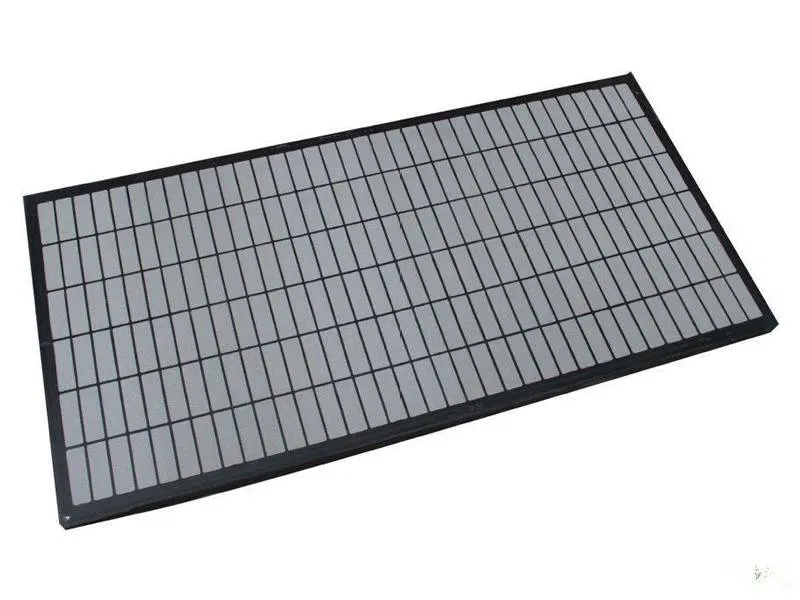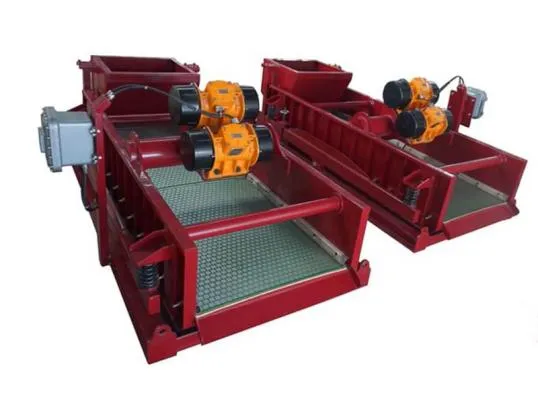- Industrial zone, South of Anping Town, Hengshui, Hebei, China.
- sales@hfpetromesh.com
- +86-18931809706
 Afrikaans
Afrikaans  Albanian
Albanian  Amharic
Amharic  Arabic
Arabic  Armenian
Armenian  Azerbaijani
Azerbaijani  Basque
Basque  Belarusian
Belarusian  Bengali
Bengali  Bosnian
Bosnian  Bulgarian
Bulgarian  Catalan
Catalan  Cebuano
Cebuano  Corsican
Corsican  Croatian
Croatian  Czech
Czech  Danish
Danish  Dutch
Dutch  English
English  Esperanto
Esperanto  Estonian
Estonian  Finnish
Finnish  French
French  Frisian
Frisian  Galician
Galician  Georgian
Georgian  German
German  Greek
Greek  Gujarati
Gujarati  Haitian Creole
Haitian Creole  hausa
hausa  hawaiian
hawaiian  Hebrew
Hebrew  Hindi
Hindi  Miao
Miao  Hungarian
Hungarian  Icelandic
Icelandic  igbo
igbo  Indonesian
Indonesian  irish
irish  Italian
Italian  Japanese
Japanese  Javanese
Javanese  Kannada
Kannada  kazakh
kazakh  Khmer
Khmer  Rwandese
Rwandese  Korean
Korean  Kurdish
Kurdish  Kyrgyz
Kyrgyz  Lao
Lao  Latin
Latin  Latvian
Latvian  Lithuanian
Lithuanian  Luxembourgish
Luxembourgish  Macedonian
Macedonian  Malgashi
Malgashi  Malay
Malay  Malayalam
Malayalam  Maltese
Maltese  Maori
Maori  Marathi
Marathi  Mongolian
Mongolian  Myanmar
Myanmar  Nepali
Nepali  Norwegian
Norwegian  Norwegian
Norwegian  Occitan
Occitan  Pashto
Pashto  Persian
Persian  Polish
Polish  Portuguese
Portuguese  Punjabi
Punjabi  Romanian
Romanian  Russian
Russian  Samoan
Samoan  Scottish Gaelic
Scottish Gaelic  Serbian
Serbian  Sesotho
Sesotho  Shona
Shona  Sindhi
Sindhi  Sinhala
Sinhala  Slovak
Slovak  Slovenian
Slovenian  Somali
Somali  Spanish
Spanish  Sundanese
Sundanese  Swahili
Swahili  Swedish
Swedish  Tagalog
Tagalog  Tajik
Tajik  Tamil
Tamil  Tatar
Tatar  Telugu
Telugu  Thai
Thai  Turkish
Turkish  Turkmen
Turkmen  Ukrainian
Ukrainian  Urdu
Urdu  Uighur
Uighur  Uzbek
Uzbek  Vietnamese
Vietnamese  Welsh
Welsh  Bantu
Bantu  Yiddish
Yiddish  Yoruba
Yoruba  Zulu
Zulu
- Afrikaans
- Albanian
- Amharic
- Arabic
- Armenian
- Azerbaijani
- Basque
- Belarusian
- Bengali
- Bosnian
- Bulgarian
- Catalan
- Cebuano
- Corsican
- Croatian
- Czech
- Danish
- Dutch
- English
- Esperanto
- Estonian
- Finnish
- French
- Frisian
- Galician
- Georgian
- German
- Greek
- Gujarati
- Haitian Creole
- hausa
- hawaiian
- Hebrew
- Hindi
- Miao
- Hungarian
- Icelandic
- igbo
- Indonesian
- irish
- Italian
- Japanese
- Javanese
- Kannada
- kazakh
- Khmer
- Rwandese
- Korean
- Kurdish
- Kyrgyz
- Lao
- Latin
- Latvian
- Lithuanian
- Luxembourgish
- Macedonian
- Malgashi
- Malay
- Malayalam
- Maltese
- Maori
- Marathi
- Mongolian
- Myanmar
- Nepali
- Norwegian
- Norwegian
- Occitan
- Pashto
- Persian
- Polish
- Portuguese
- Punjabi
- Romanian
- Russian
- Samoan
- Scottish Gaelic
- Serbian
- Sesotho
- Shona
- Sindhi
- Sinhala
- Slovak
- Slovenian
- Somali
- Spanish
- Sundanese
- Swahili
- Swedish
- Tagalog
- Tajik
- Tamil
- Tatar
- Telugu
- Thai
- Turkish
- Turkmen
- Ukrainian
- Urdu
- Uighur
- Uzbek
- Vietnamese
- Welsh
- Bantu
- Yiddish
- Yoruba
- Zulu
Фев . 15, 2025 23:56
Back to list
walkway grates
Trench drain systems have become indispensable in various applications, from residential settings to industrial zones, effectively managing water flow and preventing damage. One crucial component of these systems is the trench drain grate, a subtle yet critical part that ensures safety, functionality, and aesthetic value. This guide examines eight different trench drain grates, focusing on their unique features, applications, and the value they bring to your drainage systems, thus supporting your selection process with expertise and trust.
5. Brass Grates For locations where aesthetic appeal meets functionality, brass grates exhibit sophistication with their warm hue and natural resistance to corrosion. Frequently seen in luxurious residential settings, spas, and hotels, brass adds a premium feel to any drainage installation while maintaining efficient water management. 6. Aluminum Grates Known for being lightweight yet strong, aluminum grates are an excellent choice for pedestrian areas and light-vehicular traffic zones. Their resistance to rust and minimal maintenance requirements make them cost-effective in the long run. Moreover, their versatility in design allows them to suit various architectural styles, providing both functional and aesthetic benefits. 7. HDPE Grates High-Density Polyethylene (HDPE) grates are celebrated for their flexibility and resilience. Often used in harsh environments, including chemical plants and wastewater facilities, their resistance to biological growth and chemical leaching ensures long-term reliability. These grates are environmentally friendly, as HDPE is a recyclable material, aligning with sustainable building practices. 8. Galvanized Steel Grates Galvanized steel provides a high level of protection against rust and corrosion at a lower cost than stainless steel. With their shiny finish, these grates are attractive yet practical, making them perfect for a variety of applications, including parks, recreational areas, and commercial properties. The galvanization process extends their lifecycle, offering a sustainable option for those considering both durability and budget constraints. Choosing the right trench drain grate involves considering various factors such as environmental conditions, expected load, aesthetic requirements, and maintenance capabilities. Each material brings its own set of strengths and constraints, making it essential to align these aspects with your specific project needs. By investing in the appropriate trench drain grates, you ensure not only the effectiveness and longevity of your drainage system but also uphold safety standards and enhance property value. The expertise garnered from understanding these options empowers you to make informed decisions, supported by a foundation of reliability and quality assurance in every installation.


5. Brass Grates For locations where aesthetic appeal meets functionality, brass grates exhibit sophistication with their warm hue and natural resistance to corrosion. Frequently seen in luxurious residential settings, spas, and hotels, brass adds a premium feel to any drainage installation while maintaining efficient water management. 6. Aluminum Grates Known for being lightweight yet strong, aluminum grates are an excellent choice for pedestrian areas and light-vehicular traffic zones. Their resistance to rust and minimal maintenance requirements make them cost-effective in the long run. Moreover, their versatility in design allows them to suit various architectural styles, providing both functional and aesthetic benefits. 7. HDPE Grates High-Density Polyethylene (HDPE) grates are celebrated for their flexibility and resilience. Often used in harsh environments, including chemical plants and wastewater facilities, their resistance to biological growth and chemical leaching ensures long-term reliability. These grates are environmentally friendly, as HDPE is a recyclable material, aligning with sustainable building practices. 8. Galvanized Steel Grates Galvanized steel provides a high level of protection against rust and corrosion at a lower cost than stainless steel. With their shiny finish, these grates are attractive yet practical, making them perfect for a variety of applications, including parks, recreational areas, and commercial properties. The galvanization process extends their lifecycle, offering a sustainable option for those considering both durability and budget constraints. Choosing the right trench drain grate involves considering various factors such as environmental conditions, expected load, aesthetic requirements, and maintenance capabilities. Each material brings its own set of strengths and constraints, making it essential to align these aspects with your specific project needs. By investing in the appropriate trench drain grates, you ensure not only the effectiveness and longevity of your drainage system but also uphold safety standards and enhance property value. The expertise garnered from understanding these options empowers you to make informed decisions, supported by a foundation of reliability and quality assurance in every installation.
Share
Prev:
Next:
Latest news
-
Welded Steel Bar Grating: The Rugged Industrial Flooring Solution Built for Load and LongevityNewsJun.24,2025
-
Steel Walkway Grating: Reliable, Resilient, and Built for Every StepNewsJun.24,2025
-
Shale Shaker Screen for Sale: Optimize Drilling Efficiency with Precision Screening PowerNewsJun.24,2025
-
Shaker Screen for Sale: Elevate Your Drilling Efficiency with Durable Separation SolutionsNewsJun.24,2025
-
Press Locked Steel Grating: Industrial Strength with Precision Fit for Heavy-Duty ApplicationsNewsJun.24,2025
-
Perimeter Safety Netting: The Critical Safety Upgrade for Every HelipadNewsJun.24,2025